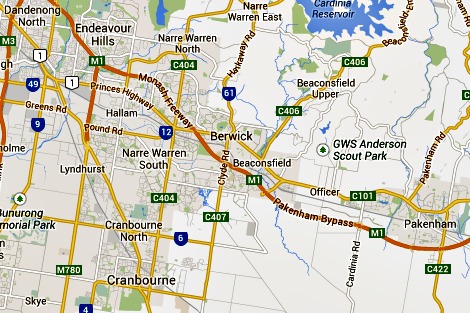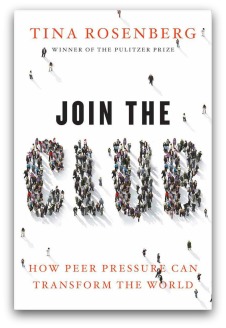Keywords: Melbourne
There are more than 200 results, only the first 200 are displayed here.
-

ARTS AND CULTURE
- Carolyn Masel
- 29 October 2013
2 Comments
A French philosopher went up the Tower to spurn the matchless view. In principle. New York City sparkled at his feet. How to convince them of their value down there: the spontaneity of life on the street — its chaos, brio, democratic lack of vista ... While up here, perilously near the far-sighted eyeball of God (that insatiable, designing orb), you could forget it all, and just hang like a planet, while the lights went out ...
READ MORE 
-

AUSTRALIA
- Luke Williams
- 03 September 2013
20 Comments
The outer suburban marginal seats will almost certainly swing to the Coalition on Saturday. I'm sure many of the Left intelligentsia think they have the reasons for this all worked out: voters in the outer suburbs are uneducated, 'aspirational', cashed-up bogans who only care about their mortgages, negating their working-class origins and keeping out asylum seekers. As a swinging voter from one such electorate, I can tell you the reality is not that simple.
READ MORE 
-

AUSTRALIA
AFL footballer Liam Jurrah had his prison sentence for an assault conviction reduced to three months. Hopefully he will not be too harmed by his experience, and afterwards may be given the chance to recommence his football career. But the conditions confronting his cousins and brothers will not change. In the NT there is a troubling confluence between harsher penalties and increasing incarceration rates.
READ MORE 
-

MEDIA
- Brian Matthews
- 19 July 2013
3 Comments
Pearson and I scarcely ever agreed about anything, but I look back on the Adelaide Review's ragtag, cavalier youth with gratitude and affection. Likewise my time as a columnist with the brazen, short-lived Melbourne Partisan magazine. They were heady days, fuelled by rampant idealism, up-jumped confidence, booze, and the erratic, fortunate combination of various talents.
READ MORE 
-

ARTS AND CULTURE
- Gillian Bouras
- 17 July 2013
23 Comments
Knowing I was going to spend six months in Greece, I arranged for a trunk of books to be sent over. My illiterate mother-in-law was stupefied: 'So many books! Can't you sell some of them?' I should have known she'd react like this, as during her one visit to Melbourne she'd told me roundly that too much reading was the cause of my prematurely grey hair and my need to wear glasses.
READ MORE 
-

ARTS AND CULTURE
- Shira Sebban
- 01 July 2013
4 Comments
Since time immemorial, philosophers have argued that we are social animals. Yet it was not until my father's death that my longing for community became urgent. I'd once asked him if he would like to be buried in the same cemetery as his parents in Toronto, or in Melbourne where he'd lived for more than 30 years. 'We should be buried within the community where we live,' he replied.
READ MORE 
-

AUSTRALIA
The toddlers are from Syria. The boys are Sri Lankan Tamils, nervous as they will soon be flown to a Tasmanian facility for unaccompanied minors — one asks me if it will be cold. Visiting a detention centre is a small act to say that the Australian Government's policy of detaining asylum seeker men, women and children is not in our name.
READ MORE 
-

AUSTRALIA
- Ellena Savage
- 07 June 2013
10 Comments
This past fortnight, race has been high on the agenda. Can a 13-year-old be racist? Is what Eddie McGuire said racist? Meanwhile, revelations that police officers in one Melbourne suburb had printed and distributed 50 racist stubby holders hinted at a frightening culture of racialised violence. The reality is that racial violence is inextricable from racist language.
READ MORE 
-

ARTS AND CULTURE
- Margaret McDonald
- 24 April 2013
2 Comments
The city seemed always to sulk under clouds. Only occasionally the sun showed its face, promising something but never delivering: just like his life. He was confused and often afraid. He had not wanted to leave his home, but his family had sacrificed much to send him here, and he was starting to feel he had let them down.
READ MORE 
-

AUSTRALIA
- Evan Ellis
- 28 November 2012
9 Comments
The pack mentality that led military personnel to ingore instances of rape seemed also to be at play on the Melbourne bus where a French woman suffered a tirade of abuse while most passengers sat silently by. An American journalist has argued that a peer group's creation of a social norm of human kindness could be the most effective way to encourage defiance to an immoral order.
READ MORE 
-

AUSTRALIA
- Michael Mullins
- 05 November 2012
5 Comments
Australians are expected to spend $60.6 million in betting on tomorrow’s Melbourne Cup, an increase of 7.5 per cent since last year. But while the majority of bets will be placed in person at the TAB, online and mobile betting is rising rapidly. Because this form of gambling is particularly susceptible to impulse behaviour, pre-commitment laws are essential.
READ MORE 
-

RELIGION
- Frank Brennan
- 17 October 2012
1 Comment
Full text from Fr Frank Brennan SJ's address 'Advancing human rights in Australia — lessons from the National Human Rights Consultation' at the 'Human Rights Matters!' conference marking Anti-Poverty Week 2012. 17 October 2012, Cardinal Knox Centre, St Patricks Cathedral, Melbourne.
READ MORE